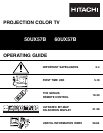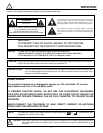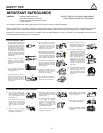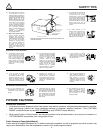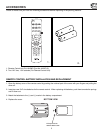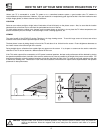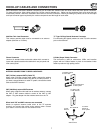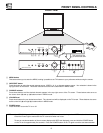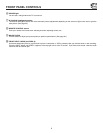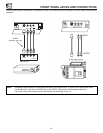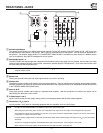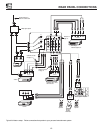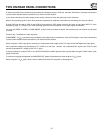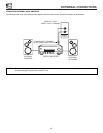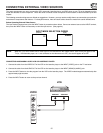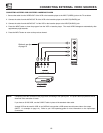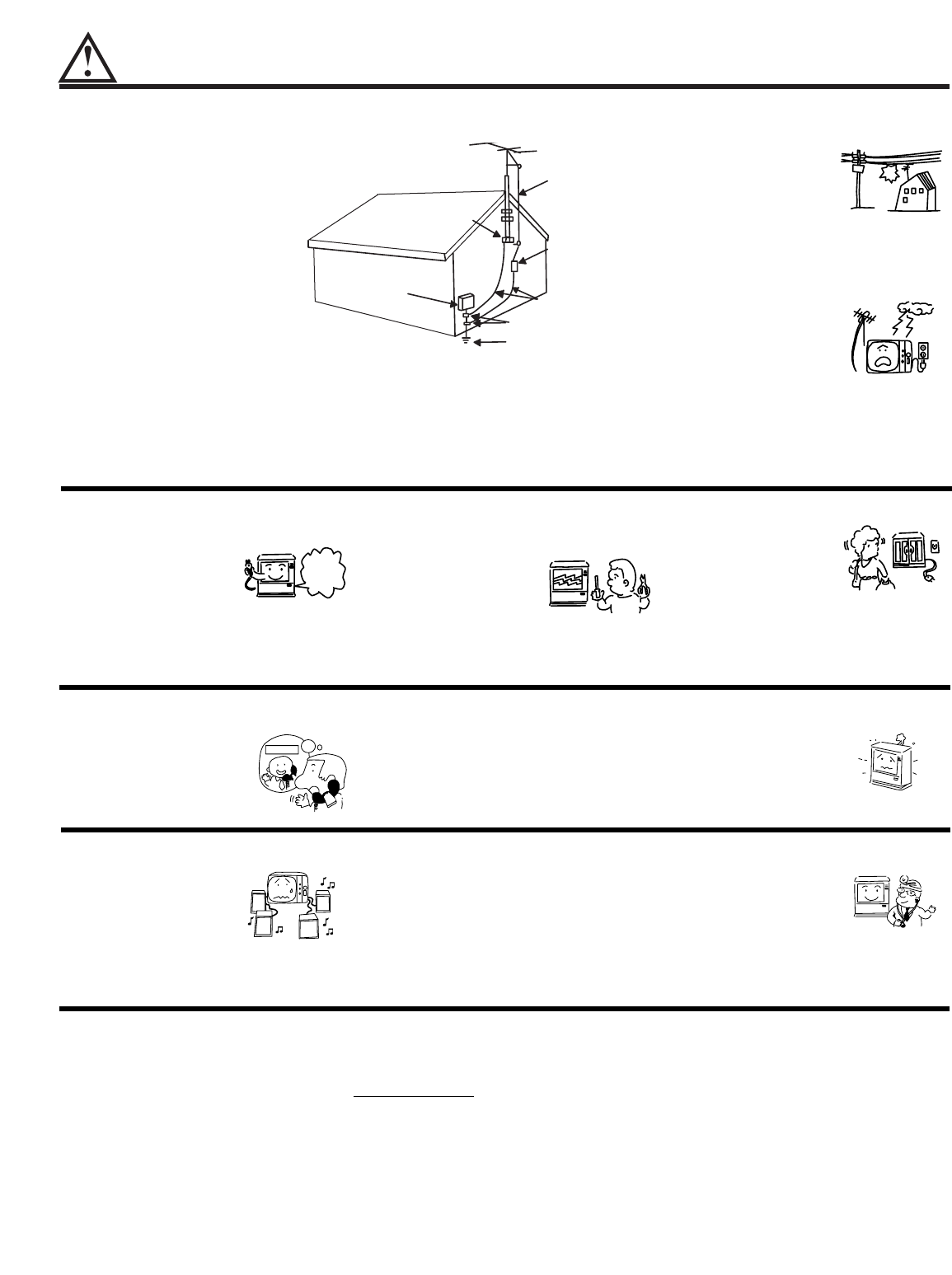
SAFETY TIPS
4
PICTURE CAUTIONS
Picture Burn Prevention
• Continuous on-screen displays such as video games, stock market quotations, computer generated graphics, and other
fixed (non-moving) patterns can cause permanent damage to projection television receivers. Such “PATTERN
BURNS” constitute misuse and are NOT COVERED by your HITACHI Factory Warranty.
• When using Picture-in-Picture function, the sub-picture should not be left permanently in one corner of the screen or a
“PATTERN BURN” may develop over a long period of time.
Public Viewing of Copyrighted Material
Public viewing of programs broadcast by TV stations and cable companies, as well as programs from other sources, may
require prior authorization from the broadcaster or owner of the video program material.
PROTECTION AND LOCATION OF YOUR TELEVISION
16-1. If an outside antenna is connected
to the television, be sure the
antenna system is grounded so as
to provide some protection against
voltage surges and built-up static
charges. Section 810 of the
National Electrical Code, NFPA
No. 70-1975, provides information
with respect to proper grounding
of the mast and supporting
structure, grounding of the lead-in
wire to an antenna discharge unit,
size of grounding conductors,
location of antenna discharge unit
connection to grounding
electrode, and requirements for
the grounding electrode.
16-2. Note to CATV system installer:
(Only for television with CATV
reception). This reminder is
provided to call the CATV system
installer’s attention to Article 820-
40 of the NEC that provides
guidelines for proper grounding
and, in particular, specifies that
the cable ground shall be
connected to the grounding
system of the building, as close
to the point of cable entry as
practical.
ANTENNA
LEAD IN
WIRE
ANTENNA
DISCHARGE UNIT
(NEC SECTION 810-20)
GROUNDING CONDUCTORS
(NEC SECTION 810-21)
GROUNDING CONDUCTORS
POWER SERVICE GROUNDING
ELECTRODE SYSTEM
(NEC ART 250 PART H)
NEC NATIONAL ELECTRICAL CODE
ELECTRIC
SERVICE
EQUIPMENT
GROUND
CLAMP
No !
17. An outside antenna system should
not be located in the vicinity of
overhead power lines or other
electrical lights or power circuits,
or where it can fall into such power
lines or circuits. When installing an
outside antenna system, extreme
care should be taken to keep from
touching such power lines or
circuits as contact with them might
be fatal.
18. For added protection for the
television during a lightning storm,
or when it is unused for long
periods of time, unplug it from the
wall outlet and disconnect antenna.
This will prevent damage due to
lightning and power-line surges.
EXAMPLE OF ANTENNA GROUNDING AS PER NATIONAL ELECTRICAL
CODE INSTRUCTIONS.
19. This television should be operat-
ed only from the type of power
source indicated on the marking
label. If you are not sure of the
type of power supply at your
home, consult your dealer or local
power company. For televisions
designed to operate from battery
power, refer to the operating
instructions.
20. If the television does not operate
normally by following the operating
instructions, unplug the television
from the wall outlet and refer
servicing to qualified service
personnel. Adjust only those
controls that are covered in the
instructions as improper adjustment
of other controls may result in
damage and will often require
extensive work by a qualified
service technician to restore the
television to normal operation.
OPERATION OF YOUR TELEVISION
Use
Proper
Voltage
?
21. If your television is to remain
unused for a period of time, (such
as when going on a holiday), turn
the television OFF and unplug it
from the wall outlet.
22. If you are unable to restore
normal operation by following
the detailed procedure in your
operating instructions, do not
attempt any further adjustments.
Unplug the television and call
your dealer or service technician.
IF THE TELEVISION DOES NOT OPERATE PROPERLY
23. Whenever the television is
damaged or fails, or if there is a
distinct change in performance
that indicates a need for service,
unplug the television and have it
checked by a qualified service
technician.
Service
Pop
Snap
Pop
Snap
24. It is normal for some televisions to
make occasional snapping or
popping sounds, particularly when
being turned on or off. If the
snapping or popping is continuous
or frequent, unplug the set and
consult your dealer or service
technician.
25. Do not use attachments not
recommended by the television
manufacturer as they may cause
hazards.
FOR SERVICING AND MODIFICATION
ask
me!
26. If replacement parts are required,
be sure the service technician has
used replacement parts specified by
the manufacturer that have the
same characteristics as the original
part. Unauthorized substitutions
may result in fire, electric shock, or
other hazards.
27. Upon completion of any service or
repairs to the television, ask the
service technician to perform
routine safety checks to determine
that the television is in safe
operating condition.



